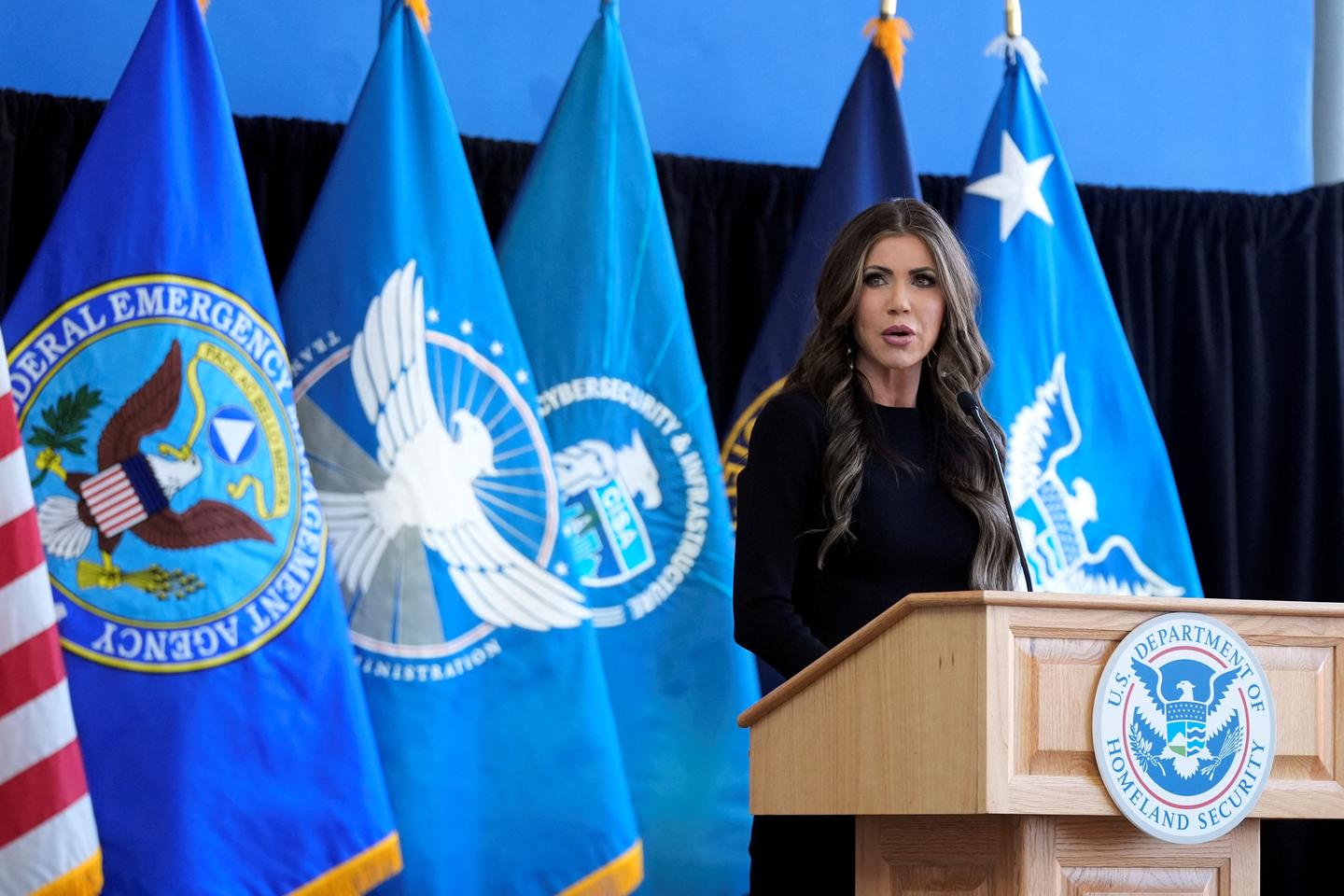


Homeland Security Secretary Kristi Noem said Wednesday, January 29, that the Trump administration had revoked a decision that would have protected roughly 600,000 people from Venezuela from deportation, putting some of them at risk of being removed from the country in about two months.
Noem signed a six-page notice reversing a decision made by her predecessor, Alejandro Majorkas, in the waning days of the Biden administration to extend Temporary Protected Status. The move is effective immediately.
"Before he left town, Mayorkas signed an order that said for 18 months they were going to extend this protection to people that are on Temporary Protected Status, which meant that they were going to be able to stay here and violate our laws for another 18 months," Noem told Fox and Friends. "We stopped that."
Under the Biden administration extension, protections were extended until October 2026. That now reverts to two separate designations – one that expires this April and one in September. Venezuelans would lose their ability to work in the US and be at risk of being deported. The move comes amid a slew of actions on immigration. Trump has promised to crack down on illegal immigration and carry out the largest mass deportation efforts in US history.
Noem has until Saturday to decide what to do about the group whose protections expire in April and until July 12 for the group whose protections expire in September. If she does nothing, the protections automatically extend for another six months.
The US doesn't have diplomatic relations with Venezuela, limiting deportation options. Other countries that do not receive deportees include Cuba and Nicaragua, but Noem said President Donald Trump "clearly will exercise all the authority and power that he has to make these countries take them back."
'Uncertainty and fear'
The biggest immediate impact is uncertainty and fear, said Aaron Reichlin-Melnick, an expert at the American Immigration Council.
"People who believed they were firmly secure through 2026 thanks to the extension are now back in limbo," he said, and hundreds of thousands of people losing work authorizations "could have huge economic impacts."
Federal regulations allow the extensions to be terminated early, though that's rarely been done, and groups sued when Trump took steps to end the protections during his first term. The National TPS Alliance, an advocacy group, said Wednesday that it is prepared to challenge this decision in court.
Congress created TPS in 1990 to prevent deportations to countries suffering from natural disasters or civil strife, giving people authorization to work in increments of up to 18 months at a time. About 1 million immigrants from 17 countries are protected by TPS, including people from Venezuela, Haiti, Honduras, Nicaragua, Afghanistan, Sudan, Ukraine and Lebanon. Venezuelans are one of the largest beneficiaries.
The TPS designation gives people legal authority to be in the country but doesn't provide a long-term path to citizenship. They are reliant on the government renewing their status when it expires. Critics have said that over time, the renewal of the protection status becomes automatic, regardless of what is happening in the person's home country.
In addition to Venezuelans, the Biden administration in its waning days also extended the protections to more than 230,000 Salvadoreans, 103,000 Ukrainians and 1,900 Sudanese already living in the US. Noem did not say what would happen to them, and the DHS notice only refers to Venezuelans. The policy change was first reported Tuesday by the New York Times.
